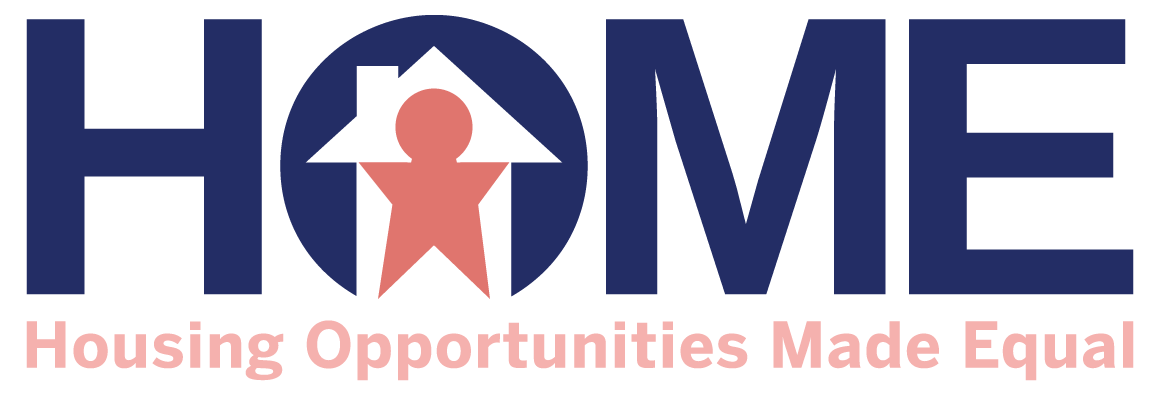Fair Housing
For housing issues and discrimination complaints,
call 716.854.1400, fill out this form, or visit HOME at 1542 main street (at ferry).
Walk-ins are welcome from 9-1 Monday through Friday. For an appointment between 1 and 5, please call ahead to schedule.
Our Fair Housing Services include recording and investigating complaints of housing discrimination, providing paralegal counseling for landlords and tenants to advise of rights and resolve disputes, providing housing and human service information and referrals to clients, providing technical assistance to government and nonprofit organizations and providing training to tenants, housing providers, agencies and municipalities.
Discrimination
HOME provides free assistance to victims of housing discrimination by:
Recording and investigating reported incidences of discrimination;
Explaining legal rights and options;
Assisting in the resolution of validated complaints of housing discrimination through advocacy, conciliation, administrative complaints, or court action; and
Providing resource referrals and ongoing emotional support.
HOME (1542 Main at Ferry in Buffalo) is open from 9AM to 5PM Monday- Friday with walk-in hours from 9AM to 1PM daily. Appointments are required for visits after 1PM.
If you feel like you’ve experienced discrimination, you may report it here or contact us by phone at 716.854.1400.
Housing Issues
HOME provides the following services to both tenants and landlords:
Paralegal counseling to resolve tenant-landlord disputes;
Information about fair housing laws;
Information about possible discriminatory practices;
Housing and human service information and referrals; and
Fair housing training (see our training page for more information).
For more information on your housing rights, please call us at 716.854.1400 or see our resources page.
We also have convenient open office hours for Town of Hamburg residents. Office hours are held on the first Wednesday of every month from 2PM to 4PM. All are welcome!
Town of Hamburg Community Development
6122 South Park Ave.
Hamburg, NY 14075
If you’d like to set up an appointment, please contact HOME's Education Manager at 716.854.1400 ext. 19 or by email.
FAQ: DISCRIMINATION
What is Fair Housing?
Fair housing is the right of all residents of this country to live "where the heart desires and the means permit." Where we live has an impact on every aspect of our lives from access to employment to education for our children.
When segments of the population are denied housing opportunities, they are also denied equal access to schools, public transportation, areas of businesses and other services. In effect, it is denying victims of discrimination an equal opportunity in life. The Fair Housing Act of 1968 and its subsequent amendments, as well as certain state and local laws, protect people from being discriminated against based on race, color, sex, disability, religion/creed, familial status, national origin, age, military status, marital status, sexual orientation, gender identity and expression, and lawful source of income.
Who is protected by fair housing laws?
Everyone belongs to a protected class. Fair housing laws protect us all, whether we are renters, buyers, sellers, or homebuyers, and they are in everyone’s best interest. The FHA and other state and local laws outlaw discrimination in the sale, rental, negotiation, and financing (such as lending) of housing units.
Isn’t discrimination a thing of the past?
Despite the brave and tireless work of those before us, and despite the passage of various laws protecting civil rights, discrimination persists. Today, it is often done with a “handshake and a smile,” but it continues to limit the options of good tenants looking for housing within their means. HOME processes about 200 housing discrimination caseseach year. Sadly, these numbers do not represent all instances of discrimination in WNY; oftentimes, people do not file complaints because they have come to accept discriminatory treatment as “the norm,” they are afraid of retaliation, they are unaware of their rights, or they don’t know where to turn.
What does housing discrimination look like?
The language of housing discrimination can be clear, such as: "We don't rent to your kind of people." Or: "I don’t want you here because you are pregnant.” Or: “I won't rent to you because your kids could fall off the balcony and you can sue me." However, more often discrimination is hidden in language like this:
Often, this language is used to dissuade certain tenants from inquiring further about a rental.
Other Illegal Acts
Fair Housing laws also make the following actions illegal:

